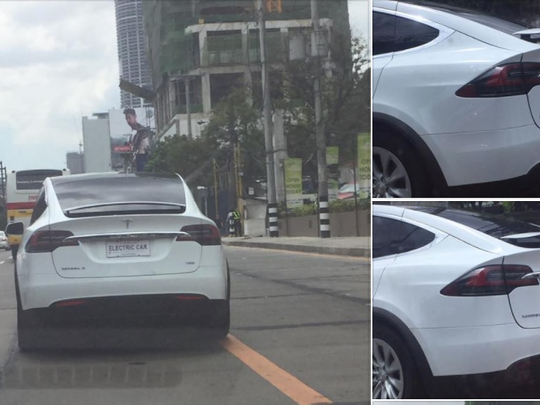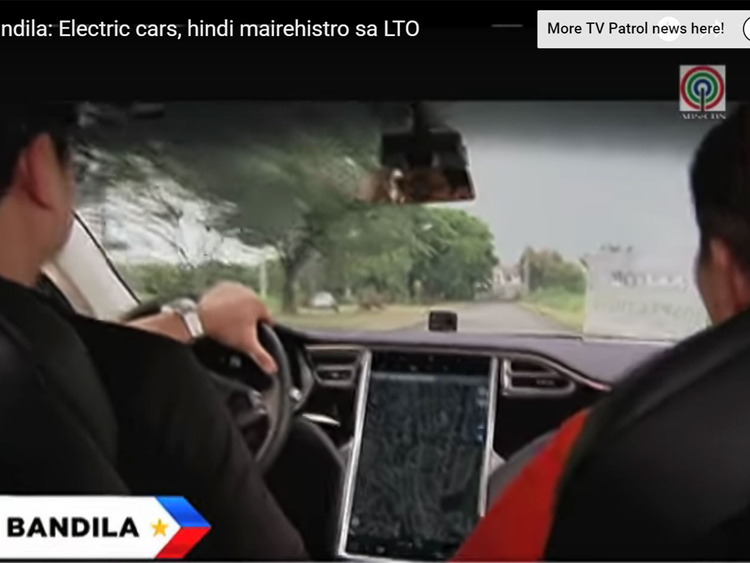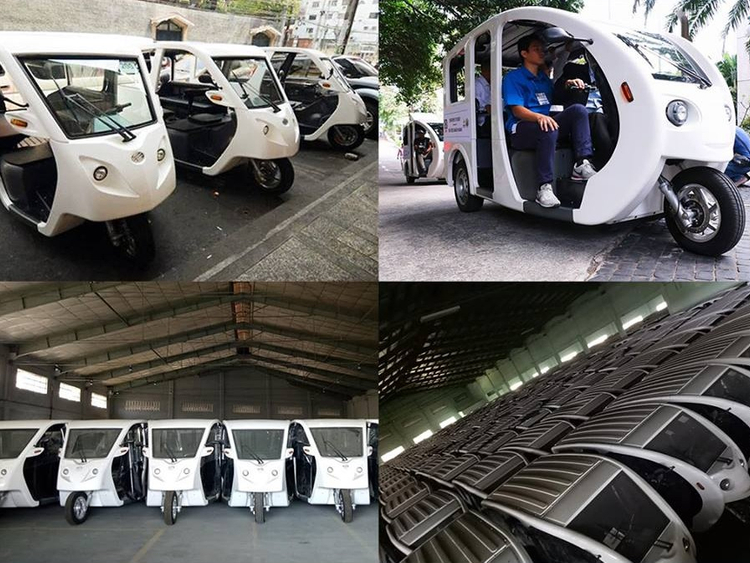
A Filipino owner of a super-fast electric car was told recently not to drive his Tesla on Philippine roads as it is classified as a “low-speed vehicle (LSV)” under 2008-era registration rules of the Land Transport Office (LTO), according to Philippine media.
That absurd solution may not be resolved for good anytime soon.
One reason: Until now, no legislation exists recognising EVs. The country's notoriously slow legislative mill is dominated by oligarchs, warlords and well-paid "Party List" representatives.
After the usually goons-and-stars-inspired vote (every 3 years), their main reason for being is to pass the National Budget, from where fat kickbacks from substandard local construction projects flow.
This makes the futuristic, all-electric Model X P100D unqualified even to get a car plate, according to Tagalog-language report of the Manila-based ABS-CBN news site.
And because it does not fit existing vehicle registration classification, which till May had room only for internal combustion vehicles (ICVs), land transport officials advised the owner not to use it on public roads.
Slow vehicle?
The Model X P100D (price: about $146,000) is anything but LSV (slow-speed vehicle) — it zooms from 0 to 100kph in 2.6 seconds.
The all-electric SUV can beat the Lamborghini Aventador in the quarter-mile race (at 11.4 seconds) and a host of other recognised supercars.
The owner of the Tesla was not identified in the report. But the advice of the Land Transport Office prompted the group of electric car industry officials to suggest temporary solutions, which the LTO later adopted.
Padyak
By law, LSVs or slow vehicles like “padyak” (muscle-driven) and all-terrain vehicles, need not be registered if it’s not used on public roads.
An act granting incentives to electric, hybrid and other alternative fuel vehicles was first proposed in 2011, consolidating four similar bills in the Philippine Senate. Nothing, however, came out of it.
In February 2012, the Land Transport Franchising and Regulatory Board (LTFRB) granted certificate of public convenience (CPC) to Makati City for its “Green Route” project, using e-jeepneys to replace the old diesel vehicles ferrying people around the commercial business district.
In April 2013, LTFRB also granted the CPC application of Green Fog ZE to operate 15 units of hybrid-electric buses from Tramo-Buendia to Kalayaan-C5 road.
Two months later, in September 2013, Beet, a Japanese EV startup has successfully registered with e-trike with the LTO.
In November 2013, however, Filipino business tycoon Manny V. Pangilinan, known in business circles by the initials "MVP", found himself unable to drive a Tesla Model S on Philippine roads because the Land Transport Office’s (LTO) archaic registration procedures still needed updating.
It was not until May 2017 when the agency resolved the issue alongside the Electric Vehicle Association of the Philippines.
Now, the EV industry is poised to get a huge boost as both the Senate and the House versions of a new law exempt both electric and hybrid vehicles from excise tax (Senate Bill 1408 and House Bill 5636).
Law stalled in Senate
That excise tax law with incentives for EVs is yet to pass the Senate, though.
Industry experts believe, however, that the relatively small Philippines car market, now the fastest-growing in South East Asia (from just 168,000 cars sold in 2010, to 324,000 units in 2015) could see car sales top 500,000 units by 2020.
During the third meet-up of Electric Vehicle Association of the Philippines earlier this year, more than 500 participants came from all over the world, and the group's leader declared an audacious target of 1 million electric vehicles on the country’s roads by 2020.
If, or when, the tax incentives do come, industry officials say EVs may slowly do to internal combustion vehicles what the smartphones eventually did to rotary dial phones.
EV manufacturing hub?
The EV sector sees the Philippines’ potential to become the hub of manufacturing of renewable transport, with several home-grown EV makers introducing e-jeepneys and e-trikes, to replace the cheap and old jeepneys and motorized tricycles, which number in the millions.
An official of the Manila utility Meralco said that if EV rollout finally comes on mass scale, the utility “should be ready even with the charging stations”.
But the official also said it all starts with legislation.
The Manila government is looking at introducing incentives to attract electric vehicles.
From July to September, the Senate will debate the new excise tax law which incorporates incentives for EVs, before reconciling conflicting provisions with the House version passed on May 31, 2017.
The final law may be ready for President Rodrigo Duterte’s signature by December.
The vehicle excise tax law, which provides exemptions for EVs, may kick in by January 1, 2018.















